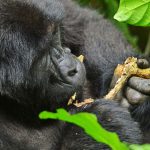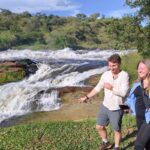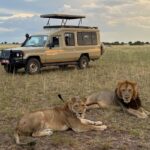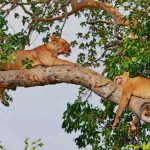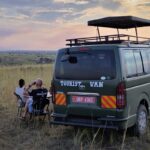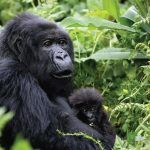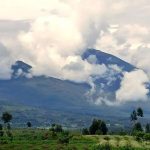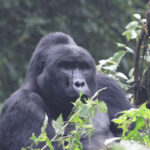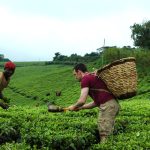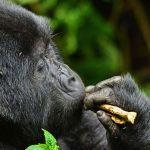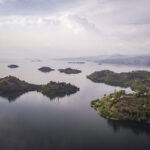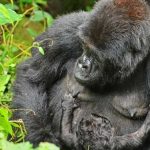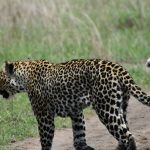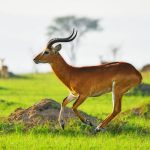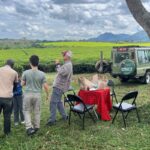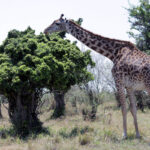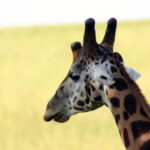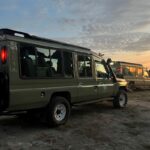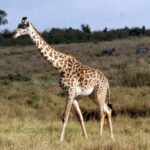What is Gorilla Trekking? A Complete Guide to This Unforgettable Wildlife Adventure
Discover the thrilling experience of gorilla trekking, where you’ll hike through dense forests to encounter mountain gorillas in their natural habitat. Learn everything about this once-in-a-lifetime adventure, from what to expect on the trek to how it contributes to gorilla conservation efforts.
Gorilla trekking is one of the most captivating wildlife experiences available to adventurous travelers. This once-in-a-lifetime journey involves trekking deep into dense forests to observe mountain gorillas in their natural habitat. Organized in East and Central Africa, gorilla trekking takes you on a rugged adventure through the wild to encounter these magnificent creatures, known for their gentle demeanor and remarkable human-like qualities. As part of the great ape family, gorillas share 98% of human DNA, making them one of the closest relatives to humans. In their peaceful existence within the rainforests, gorillas display social behaviors, emotions, and a family structure that fascinates all who observe them. Whether you are an experienced trekker or a wildlife enthusiast, this activity guarantees an encounter with nature that you will never forget.
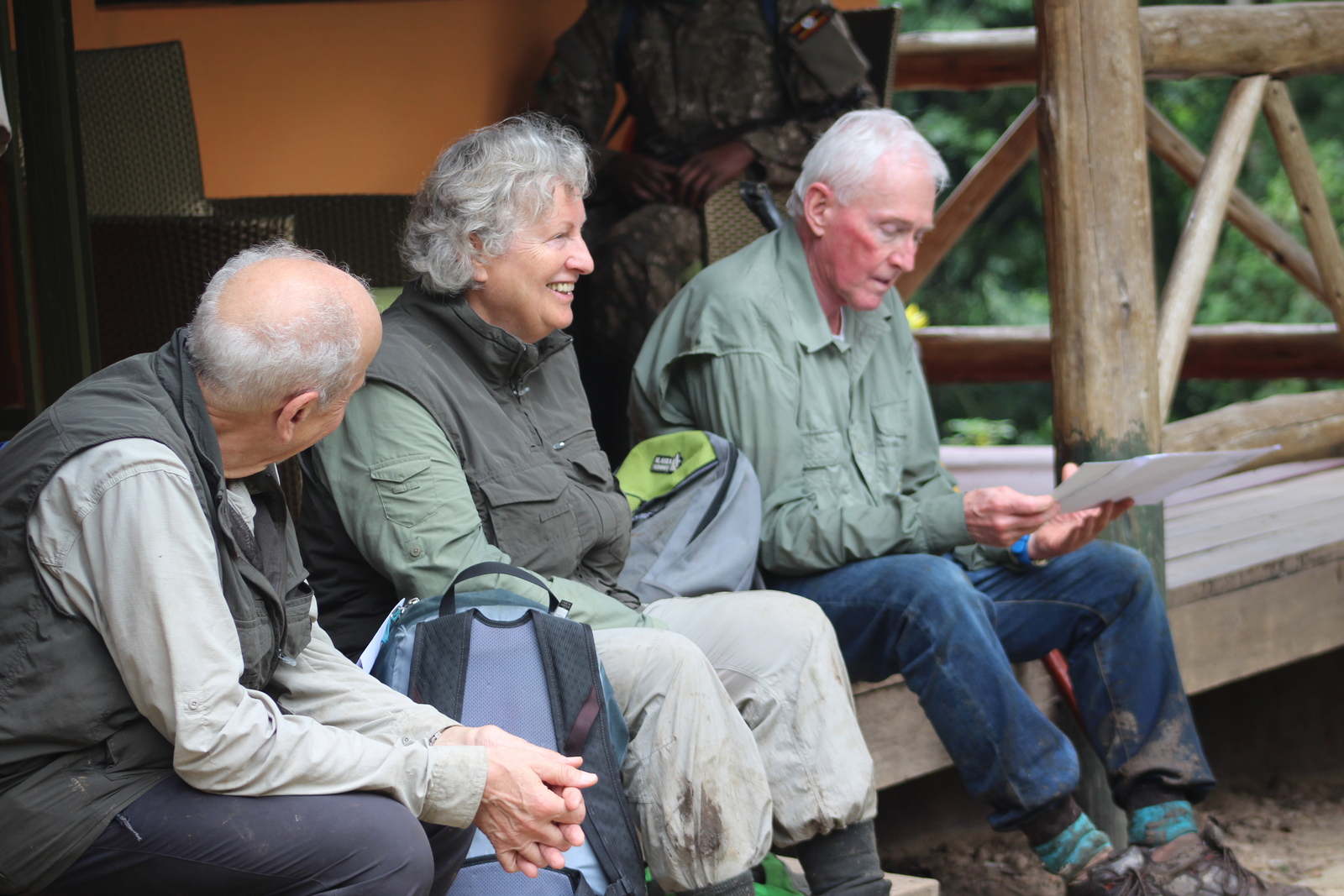
The Mountain Gorillas: Gentle Giants of the Forest
Mountain gorillas are the largest living primates and are found in the tropical rainforests of Central and East Africa, particularly in the Virunga Mountains and Bwindi Impenetrable Forest. These ‘gentle giants’ are generally shy and non-aggressive creatures, earning the name due to their calm and non-confrontational nature. They only become aggressive when they feel threatened, otherwise, they prefer to live in peace within their social units. A typical gorilla troop consists of a dominant silverback male, several adult females, and their offspring. The silverback plays a crucial role in maintaining order and offering protection to the group. Gorillas spend the majority of their day feeding on vegetation such as leaves, stems, fruits, and shoots. As ground dwellers, they navigate the forest floor with ease, spending hours foraging and resting.
Observing gorillas in their natural habitat provides insight into their behavior, including their communication methods, their complex social bonds, and how they nurture their young. A silverback is an awe-inspiring figure, towering over the troop with a calm authority that commands respect. The tenderness between mothers and their offspring is a sight to behold, with young gorillas playfully interacting with one another while learning essential survival skills. This level of emotional connection, much like human families, makes gorilla trekking an emotional and powerful experience for visitors.
What is Gorilla Trekking?
Gorilla trekking is an exhilarating experience that takes participants through dense forests, rugged mountains, and diverse ecosystems in search of gorillas. Trekking starts early in the morning with a briefing session at the park headquarters led by experienced park rangers. Here, participants are divided into small groups, usually not exceeding eight people, and given safety guidelines to ensure the well-being of both trekkers and gorillas. After the briefing, the adventure begins as you set off into the forest, guided by expert trackers and guides. These guides are highly skilled in interpreting signs of gorilla presence, such as fresh nests, droppings, and chewed bamboo shoots, allowing them to navigate the dense foliage toward the gorilla families.
Gorilla trekking is not a simple hike—it’s a challenging journey that takes you through thick forests, steep mountain slopes, and uneven terrain. The distance and time taken to find the gorillas can vary depending on their location that day. Some treks may take as little as one hour, while others can stretch into five or more, depending on the movement of the gorilla groups. The trek requires participants to be in good physical condition, as the altitude and landscape can make the journey demanding. However, the thrill of navigating through untouched wilderness while following in the footsteps of these incredible creatures adds to the adventure.
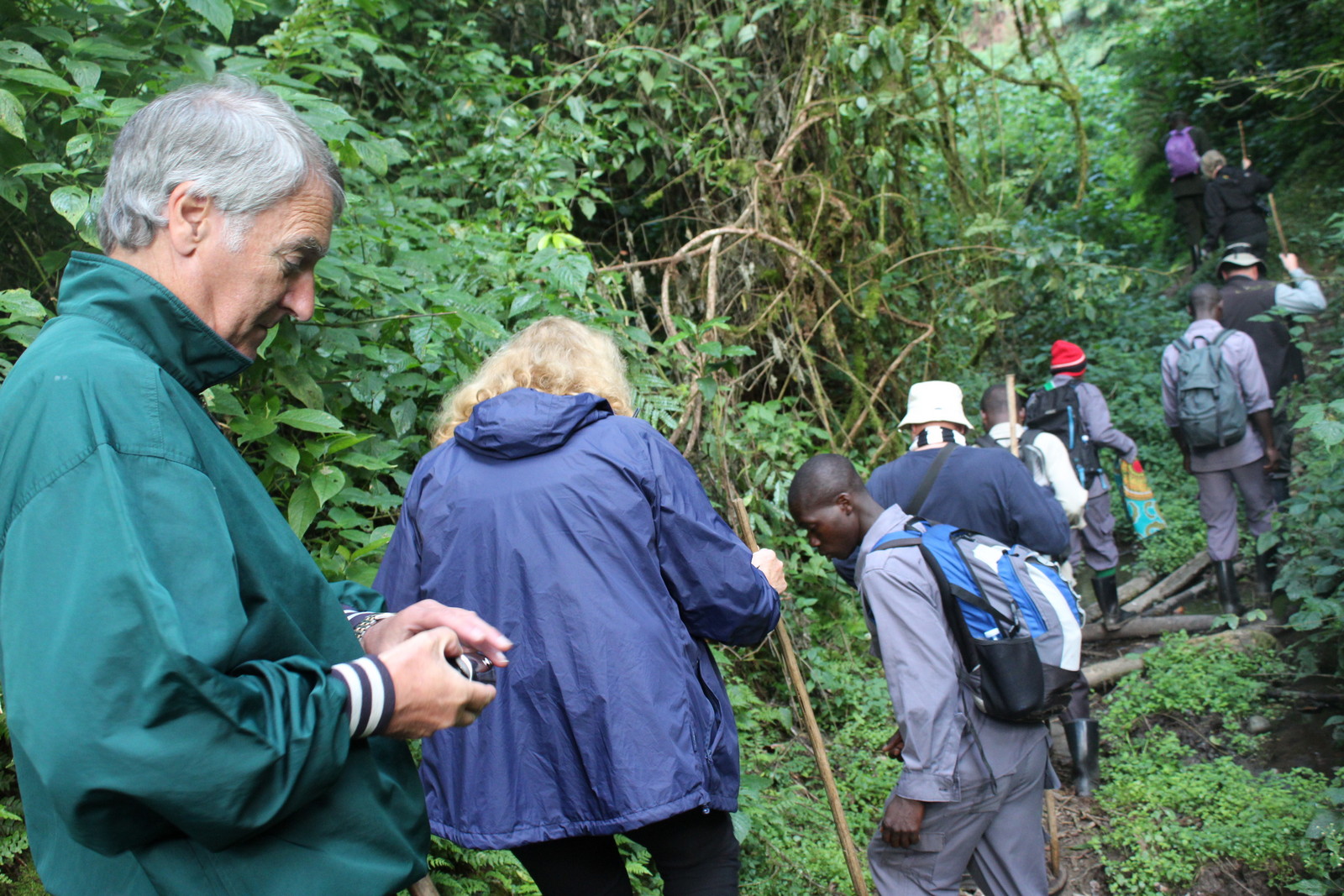
The Encounter: Face-to-Face with the Mountain Gorillas
After hours of trekking, the moment finally arrives when you come face-to-face with a family of mountain gorillas. This moment is beyond words—seeing these majestic animals in their natural habitat is both humbling and awe-inspiring. Visitors are allowed to spend one hour observing the gorillas from a safe distance. During this time, the guides will remind trekkers to keep a distance of about 7 meters (21 feet) from the gorillas to ensure the safety of both the humans and the animals.
This hour offers a rare opportunity to witness gorillas interacting with each other—feeding, playing, grooming, and resting. The silverback, often seated regally, monitors the activity of the group, while mothers care for their young. The playful antics of the young gorillas are particularly enchanting as they climb, swing, and tumble around, mimicking behaviors that mirror those of human children. The experience allows you to connect with nature profoundly, making you feel like a privileged observer in the world of these remarkable primates.
Taking photographs during this encounter is permitted, but flash photography is prohibited as it can disturb the animals. It’s essential to maintain silence and avoid sudden movements to prevent alarming the gorillas. For most visitors, the emotional impact of this experience lingers long after the trek ends. Watching the powerful yet gentle creatures in their natural surroundings evokes a sense of responsibility to protect and preserve these endangered species.
Conservation and the Importance of Gorilla Trekking
Beyond the adventure, gorilla trekking plays a significant role in conservation. The revenue generated from trekking permits, along with the involvement of local communities, helps fund the protection of these critically endangered species and their habitats. The high cost of gorilla trekking permits—$800 for Uganda, and $1,500 for Rwanda—goes directly towards conservation efforts, anti-poaching patrols, and habitat restoration. Mountain gorillas are listed as endangered due to habitat loss, poaching, and diseases, making it crucial to preserve their environments and ensure their safety.
Through eco-tourism, communities living around gorilla habitats also benefit. In Uganda, Rwanda, and Congo, part of the trekking revenue is directed towards local development initiatives such as education, healthcare, and infrastructure improvements. This support creates a harmonious relationship between humans and wildlife, encouraging local communities to protect the forests rather than exploit them for short-term gain.
In recent years, the population of mountain gorillas has seen a slow but steady increase, thanks in part to the conservation efforts supported by gorilla trekking tourism. The strict regulations governing gorilla trekking—including limiting group sizes, restricting the duration of visits, and enforcing guidelines to prevent the spread of human diseases—have ensured that gorilla populations remain healthy and less disturbed by human presence.

Planning Your Gorilla Trekking Adventure
If you’re interested in embarking on a gorilla trekking adventure, it’s important to plan. Gorilla trekking permits are limited and can sell out months in advance, especially during peak seasons. The permit prices may seem high, but they reflect the immense effort and resources required to protect these magnificent creatures. Primate World Safaris Ltd can assist you in securing your trekking permit, organizing your transportation, and ensuring you have an unforgettable experience in the heart of Africa’s rainforests.
In conclusion, gorilla trekking is more than just a wildlife experience—it’s a journey into the heart of nature, offering an emotional and profound connection with one of the world’s most endangered and intelligent animals. Whether you choose to trek in Uganda’s Bwindi Impenetrable Forest or Rwanda’s Volcanoes National Park, the memories of encountering these gentle giants will remain with you forever.

